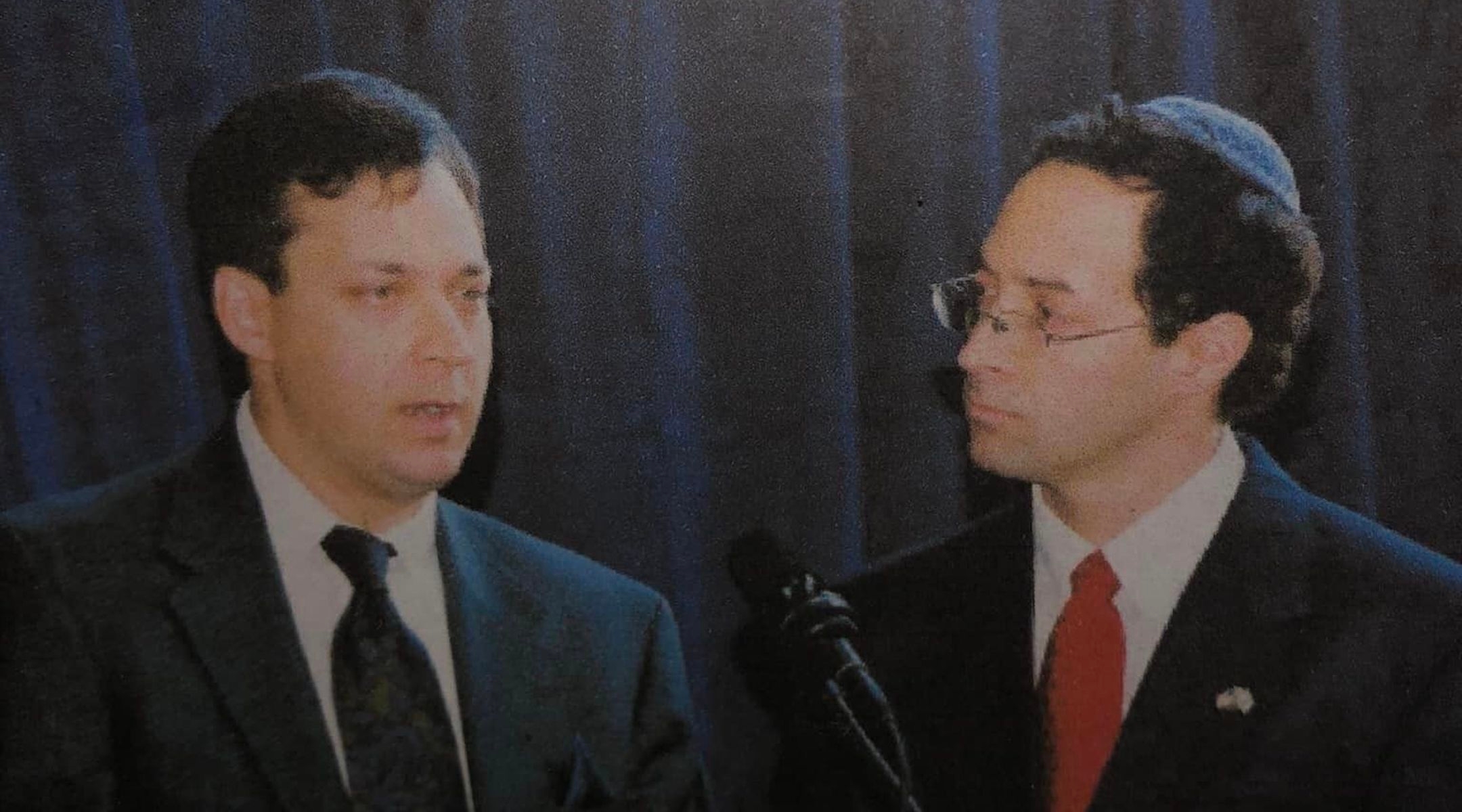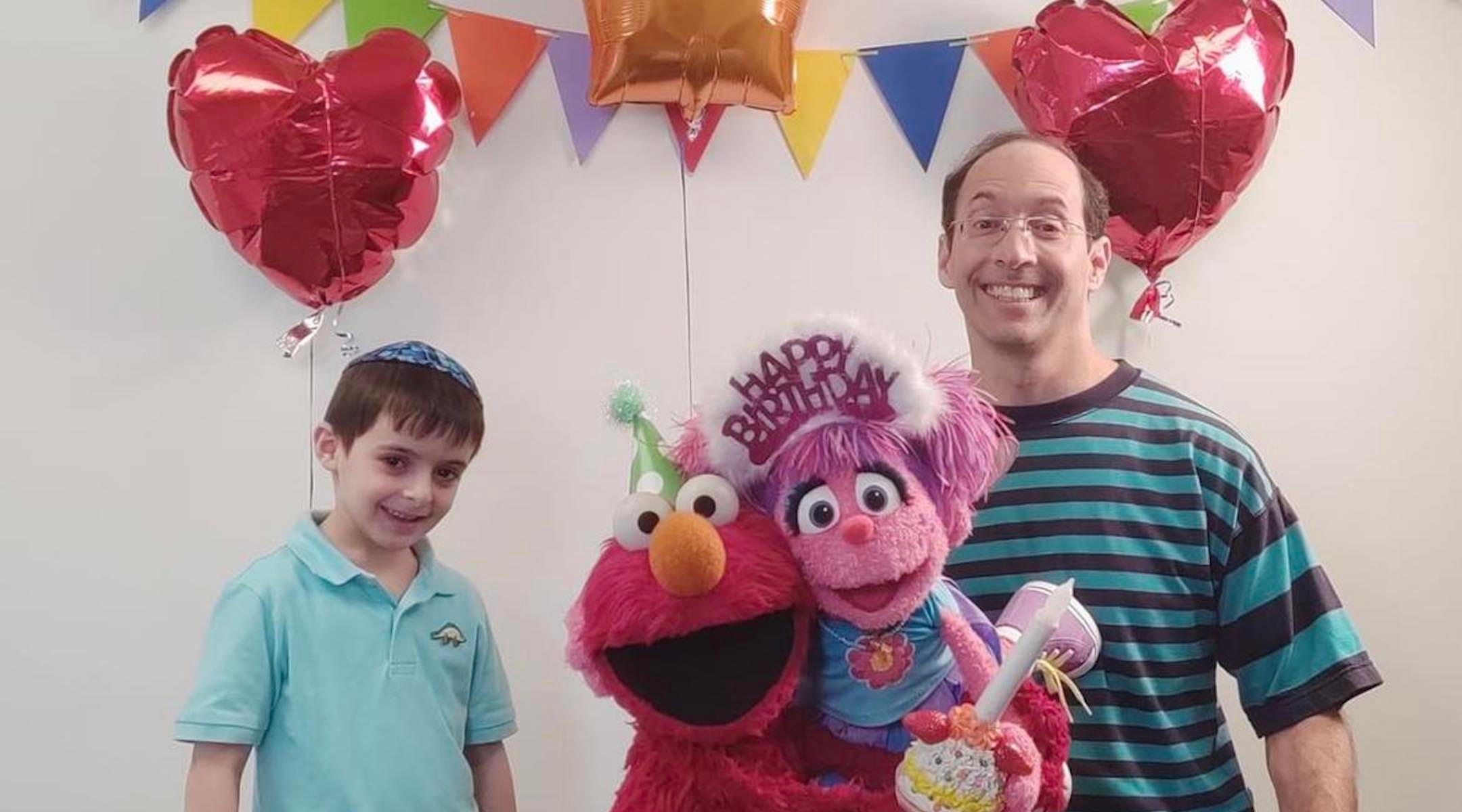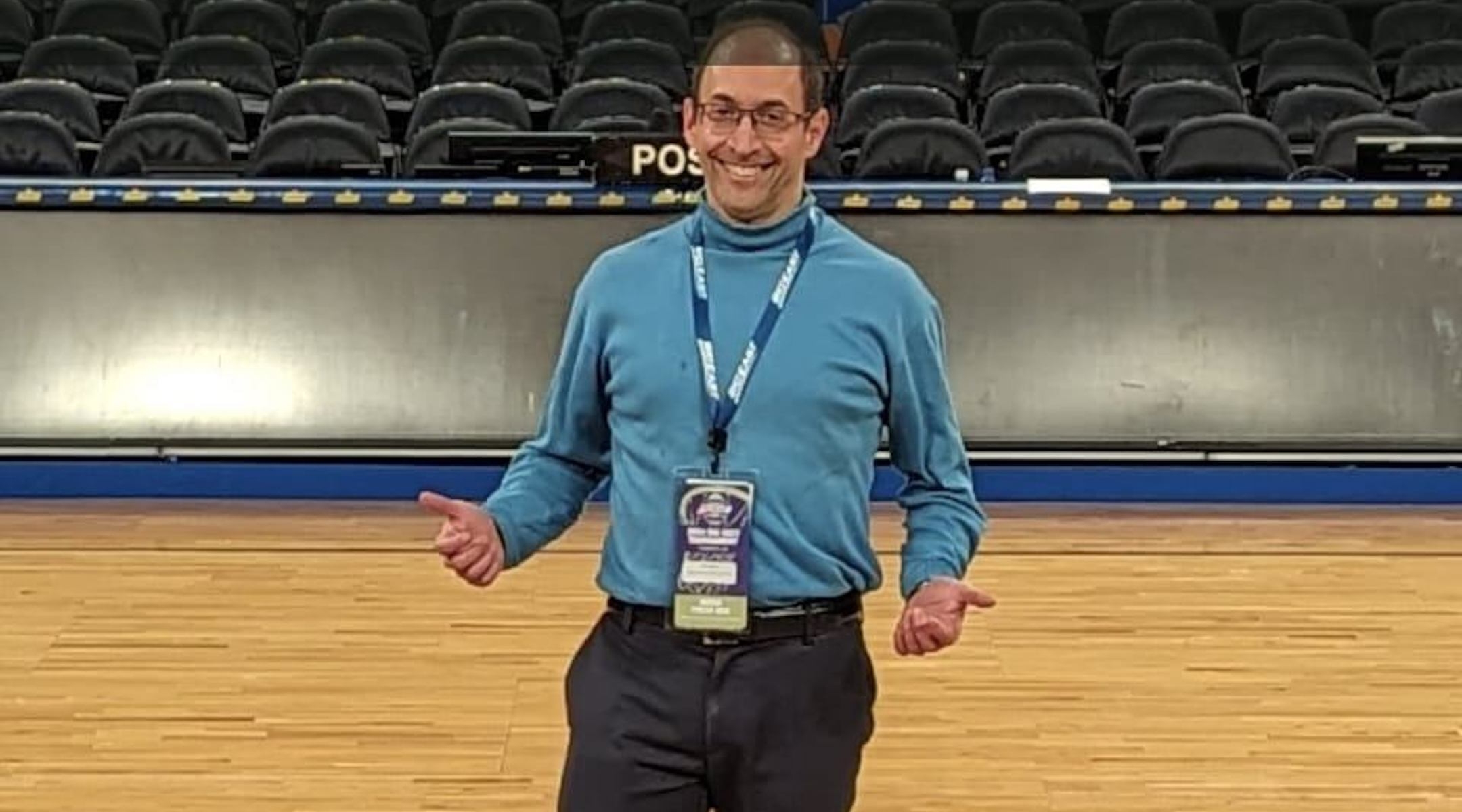(New York Jewish Week) – On the evening of Monday, April 8, the last hours Tom Weiss was seen in public, he was taking care of others: He sang and chatted with friends at the annual dinner at Ohab Zedek, his synagogue on New York’s Upper West Side. He accompanied the dinner’s senior citizen guests home afterwards and then walked a friend back to their house safely, before calling yet another friend.
It was a typical day in the life for Weiss, who according to friends and family was always the first person to call to make a minyan and the last person in the room on Friday nights and Shabbat mornings making sure everyone got home without incident.
Weiss was found dead on April 11 in his apartment on the Upper West Side, where he lived alone. Weiss’ brother said he likely passed away from a pulmonary embolism. He was 61.
While he had no spouse or children, Weiss had spent nearly his entire life on the Upper West Side creating for himself a family of hundreds of people who he cared for and who cared for him.
“He had a song in his heart and a smile on his face everywhere he went,” his younger brother, Stephen, told the New York Jewish Week, who called Weiss “Tommy” — and dubbed him a “master of chesed.”
Indeed, Weiss dedicated his life to chesed, the Hebrew term for acts of kindness, especially that of bikur cholim, or visiting the sick. For many decades before COVID-19, Weiss gathered a group of people at the corner of 96th Street and Columbus Avenue on Shabbat afternoons, walking across Central Park in every type of weather to Mount Sinai Hospital, then climbing up and down 11 stories to find Jewish patients who might like to listen to him sing or hear a kind word.
During the pandemic, Weiss began delivering meals to home-bound Manhattanites, rushing around on Friday afternoons to make sure sick and immunocompromised people would be able to have a meal for Friday night.
He also took care of his mother, Zelda, for four years until she died this past December.
“He was a sole caregiver for her. It was unbelievable — he was showering her at 91 years old. And he was smiling at that, he was never angry and never upset,” Stephen said. “He went above and beyond the call of duty every single time.”
“He was really an icon and legend on the West Side in every way,” said his longtime friend Nava Silton. “Every rabbi knew him. Every shul knew him. Every community member knew him. He was a complete paragon of virtue and chesed.”
Weiss sometimes attended five synagogues in a day to be the tenth man in a minyan, or prayer quorum, so that someone could say Kaddish for a loved one, celebrate a simcha or mark another occasion.
An ardent lover of Israel — Weiss made aliyah in the mid-2000s and lived in Israel for several years — and Jewish life, Weiss was an active member of several Jewish communities on the Upper West Side, including Manhattan Jewish Experience, the Jewish International Connection of New York and Ohab Zedek. He was dedicated both to Torah learning and to uniting Jewish communities of different denominations, his friends and rabbis say.
“He believed in the Jewish people. He gravitated towards programs that embraced Jews that were not always in the mainstream — that really spoke to him,” Rabbi Mark Wildes, the founder and director of Manhattan Jewish Experience, told the New York Jewish Week. “A lot of his spiritual development came from giving — and it was completely non-denominational. It didn’t matter whether you were a Jew and non-Jew either, but within the Jewish community, he didn’t focus on any one particular community.”

Stephen and Tom Weiss, above, were the sons of former Congressman Ted Weiss, who served the Upper West Side for 16 years. (Courtesy Stephen Weiss)
Weiss was born in Manhattan on Sept. 15, 1962. His father Ted, an immigrant from Hungary and lawyer, represented the West Side of Manhattan in the U.S. House of Representatives from 1977 until his death in 1992 at the age of 64.
As a child, Weiss belonged to B’nai Jeshurun and Stephen Wise Free Synagogue on the Upper West Side and began to get more interested in Orthodox Judaism after staying with cousins in Flatbush and keeping Shabbat for a weekend as a teenager. When his father died, Weiss became more observant, his brother said.
“Tommy was always so proud of my father,” his brother, Stephen, told the New York Jewish Week. “In a way, my brother found his own way to serve his community.”
Weiss attended Butler University in Indiana, where he was the only Jewish member of the Lambda Chi Alpha fraternity.
“For us sheltered Midwesterners, Tom was a unique blast of Manhattan brio. I had never met a Jewish person before welcoming Tom as a fraternity brother. His devotion was awe-inspiring,” wrote Dave Arland, a fraternity brother and classmate at Butler, in one of dozens of social media tributes that followed news of his death. “He will forever be the short Jewish kid on our intramural baseball team. Tom didn’t take the easy road. Everything he did was a testament to helping others, to make the lives of others better.”
Friends describe Weiss as someone who was always determined to do what he felt was right — whether that meant sneaking away from home one Sunday afternoon to catch a double header at Yankees Stadium at 9 years old or being the lone voice in synagogue singing in a falsetto pitch. But often what he felt was right was often helping as many people as he could.
“He didn’t only do it for himself, he encouraged everyone to be part of the mitzvah. It wasn’t just his own chesed, which is amazing in and of itself, but he was a true guiding light for others to do unbelievable things,” Silton said.
Upon his return to Manhattan, Weiss brought Jews together both formally and informally. As young men in their 20s, Weiss and Wildes often organized Shabbat dinners together.
“Tom was then already a very popular and very beloved member of the Upper West Side community. He was just one of the most disarming, charming individuals. People would just follow him,” remembered Wildes. “Tom would literally find people on the street on the Upper West Side to invite — when we started we had about a dozen people coming and that went all the way up to 60 people crammed into our apartment.”
At one point, Weiss pioneered a Shabbat dinner program matching congregants between the nonaffiliated congregation B’nai Jeshurun, known as BJ, and the Modern Orthodox Ohab Zedek.

Weiss appeared on Sesame Street with his friend Nava Silton’s son Jonah. Friends say he was a role model and loved working with children. (Courtesy Nava Silton)
Allen Schwartz, the senior rabbi at Ohab Zedek, where Weiss was part of the community for three decades, said he was “an eternally optimistic individual.”
“He always had faith in the best that we could be,” Schwartz said. “He once thought that I could swing having the Satmar Rebbe and the Rabbi of BJ, Roly Matalon, and myself in dialogue in the synagogue. He lived for bringing Jews together.”
“He was like a pied piper. He had a following of people — if you saw Tom coming, you knew you’d have to set plates for three, four or five people following behind him,” Stephen said.
Weiss’ dedication to different parts of Jewish life was evident at his funeral, which took place on Friday, April 12 at Plaza Jewish Community Chapel. Seven different rabbis of several denominations came to speak and honor Weiss’ life.
“I was one of seven rabbis at the funeral. I’ve never been to something like that. Every one of those rabbis had their own congregation — each of us had thought we were his favorite rabbi,” Wildes said.
Many also noted Weiss’ genuine happiness in life, as well as his complete humility and lack of ego or need for accolades. “It was this very organic humility,” Silton said. “It was never about him. It was always about everyone else and the opportunity to protect everyone else and make them shine.”
“Nobody had any idea the extent of the chesed,” Stephen said. When their mother died, Stephen told Weiss that he should do something for himself — but he never did. “He’d just smile and say ‘no, I’ve got this.’ At the end of the day, he did get it. While we’re all anxiety ridden and thinking about what’s going on in our lives, he had this worldly perspective.”
Outside of Jewish life, Weiss loved singing, running, biking and playing tennis. He and his brother played tennis three times a week in Plainview, Long Island, where Stephen lives.
“I wasn’t going into his world because I’m not religious. So he would do his thing in the city and then he would come out to what he called ‘the country,’ which is Long Island. We played tennis and then he would daven at Young Israel in Plainview,” Weiss said. “In just a short time, everybody in the tennis world out here and everybody at Young Israel knew him.”
Weiss’ ability to occupy any role wasn’t just a way of life — it was also his career. Weiss worked as a sports broadcaster, producer and actor, appearing as “Noah,” a board member of Waystar Royco in Season 1 Episode 6 of HBO’s “Succession,” and he also appeared on other shows like “Sesame Street,” “Law & Order” and “The Marvelous Mrs. Maisel.” In Israel he interviewed local politicians and everyday people for a Facebook and radio feature he called “The Ambassadors Report.”
Weiss is survived by his brother Stephen, sister-in-law Paula and niece Teddi.
“I feel like my brother had a higher calling and God needed him for something else,” Stephen said. “Meanwhile, he can still look over all of us. I believe that.”
“A lot of people in the community now are thinking to themselves, ‘How can I be more like Tom? How can I have more happiness every day in life? How can I do more to help people?’” Silton said. “A lot of people in the community are going to try to live a lot more like Tom.”
The New York Jewish Week brings you the stories behind the headlines, keeping you connected to Jewish life in New York. Help sustain the reporting you trust by donating today.





